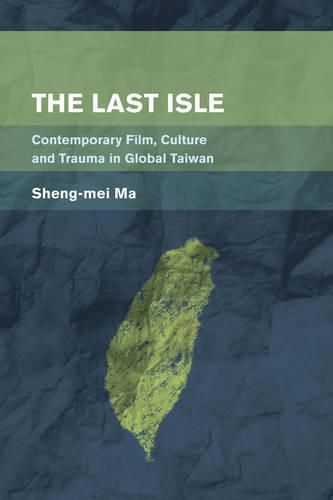Readings Newsletter
Become a Readings Member to make your shopping experience even easier.
Sign in or sign up for free!
You’re not far away from qualifying for FREE standard shipping within Australia
You’ve qualified for FREE standard shipping within Australia
The cart is loading…






Taiwan is in danger of becoming the last isle, losing its sovereignty and identity. The Last Isle opens from where Taiwan film scholarship leaves off-the 1980s Taiwan New Cinema, focusing on relatively unknown contemporary films that are unglobalizable, such as Cape No. 7, Island Etude, Din Tao, and Seven Days in Heaven. It explores Taiwan films’ inextricability with trauma theory, the irony of loving and mourning Taiwan, multilingualism, local beliefs, and theatrical practices, including Ang Lee’s white films. The second half of the book analyzes Taiwan’s popular culture in Western-style food and drink, conditions over living and dying, and English education, concluding with the source of Taiwan’s anxiety-China.
This book distinguishes itself from Taiwan scholarship in its stylistic crazy quilt of the scholarly interwoven with the personal, evidenced right from the outset in the poetic title The Last Isle, coupled with the dissertating subtitle. This approach intertwines the helix of reason and affect, scholarship and emotion. The Last Isle accomplishes a look at globalization from the bottom up, from a global Taiwan whose very existence is in doubt.
$9.00 standard shipping within Australia
FREE standard shipping within Australia for orders over $100.00
Express & International shipping calculated at checkout
Taiwan is in danger of becoming the last isle, losing its sovereignty and identity. The Last Isle opens from where Taiwan film scholarship leaves off-the 1980s Taiwan New Cinema, focusing on relatively unknown contemporary films that are unglobalizable, such as Cape No. 7, Island Etude, Din Tao, and Seven Days in Heaven. It explores Taiwan films’ inextricability with trauma theory, the irony of loving and mourning Taiwan, multilingualism, local beliefs, and theatrical practices, including Ang Lee’s white films. The second half of the book analyzes Taiwan’s popular culture in Western-style food and drink, conditions over living and dying, and English education, concluding with the source of Taiwan’s anxiety-China.
This book distinguishes itself from Taiwan scholarship in its stylistic crazy quilt of the scholarly interwoven with the personal, evidenced right from the outset in the poetic title The Last Isle, coupled with the dissertating subtitle. This approach intertwines the helix of reason and affect, scholarship and emotion. The Last Isle accomplishes a look at globalization from the bottom up, from a global Taiwan whose very existence is in doubt.